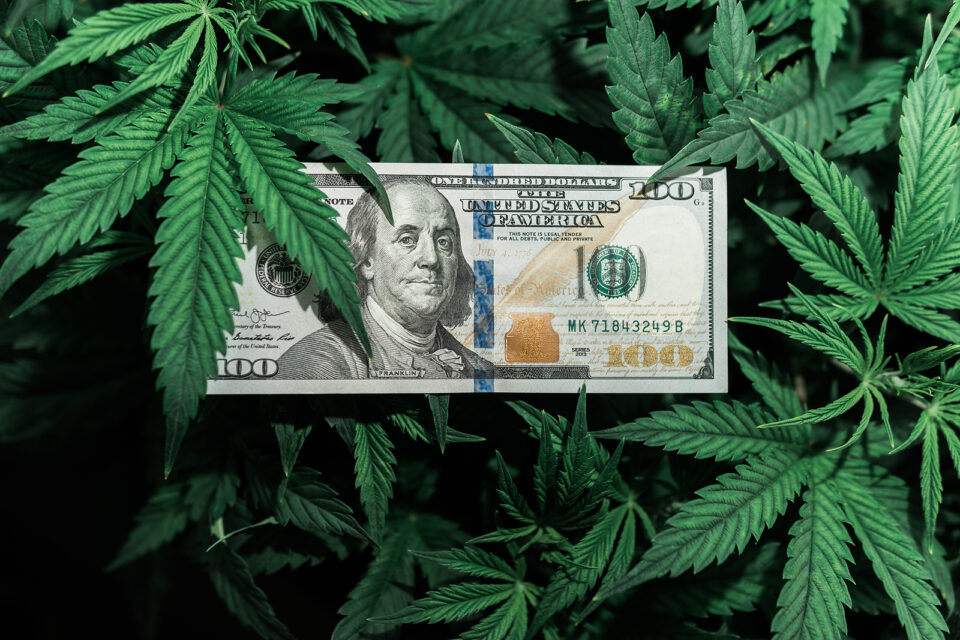OCEANSIDE — If voters approve, the city’s cannabis industry may finally see a local tax on its operations by January.
The Oceanside City Council approved an ordinance that would establish a tax on cannabis business activity if approved by voters during the Nov. 3 election. Measure M would establish a tax range to not exceed 6% of gross revenues for cannabis retailers, manufacturers and distributors, and a tax range not to exceed 3.5% of gross revenues for cultivators.
The tax would generate almost $1,900,000 annually according to city staff, who worked with consulting group HdL Companies to come up with an analysis of a potential cannabis business tax.
According to Deputy City Manager John Borrego, HdL Companies has likely worked on most of the cannabis business taxes that municipalities across the state have enacted.
“They’re very well versed on the topic,” Borrego said.
Borrego said the results recommend a taxation program that “is fair and not overly burdensome to the cannabis industry which still struggles from competition from the illicit market.”
Borrego said the state’s legal cannabis industry continues to struggle primarily due to the illegal cannabis market that still exists, but also largely because of the high taxes imposed by the state on a legal industry.
The overall goal for the industry is to not exceed an overall tax rate of 30% when combining local and state tax rates. Borrego said the state already imposes tax rates more than 25%, which leaves “very little margins for cities to work with to ensure a competitive local market.”
HdL Companies also included recommended initial rates for cannabis business taxes. For example, the analysis recommends the retail sector start off with a 5% initial tax rate.
Borrego clarified that the cannabis tax does not set the initial rate but rather a tax range to be considered. The initial rate will be discussed and determined later by Council if voters approve the measure.
The proposed tax range for Oceanside’s cannabis industry is considerably lower than the rates of other cities in the region have established. Vista currently has a 7% tax rate for retail cannabis businesses with the potential to go up to 10% while San Diego is currently at 8% but could go as high as 15%.
The tax caps the potential rate for cultivators at 3.5% of gross receipts.
Initially, staff recommended a tax rate for cultivators based on the square footage of a licensed canopy area. This received a lot of pushback from local cultivators who believed such a tax would hurt new cultivators.
Although taxing per square footage of licensed canopy area is “probably the most popular way” to tax cultivators, Borrego explained, city staff is supporting a tax on gross receipts instead. He added that such a tax likely does provide a fairer initial rate and that much of the feedback from cultivators regarding this change has been positive.
If voters approve Measure M, the tax would go into effect Jan. 1, 2021 with estimated revenues from $1.3 million to $2.9 million annually based on the proposed tax.
Proceeds from the tax could be used for any lawful, general city service including law enforcement efforts against illegally operating cannabis businesses.
Amber Newman, candidate for the District 3 council seat and former owner of A Soothing Seed cannabis nursery, wrote to the council urging them to reject the proposal for now and to only move forward if the city allows adult-use (recreational) business for cannabis manufacturers, distributors and retailers. Newman also wants the city to end its relationship with HdL Companies.
Currently, Oceanside only allows for medical use with the exception of its cultivation sector, a recent change the council approved.
According to Borrego, the cannabis business tax would automatically apply to future adult-use businesses in the manufacturing, distribution and retail sectors of the city’s cannabis industry if the council expands to the adult-use industry in the future.
Deputy Mayor Jack Feller was the only council member opposed to the tax. Feller has previously voiced his opposition to the adult-use cannabis industry within the city.
“I don’t think our children deserve this and I don’t think illegal marijuana is ever going to be out of the picture,” Feller said. “I think that police have enough things to do besides patrolling the community with all the legal use.”
In response to Feller, Councilman Chris Rodriguez noted the revenues collected from the cannabis tax would be used to offset impacts that the cannabis industry brings into the city, including additional funding for drug education programs and enforcement to stop the illegal market.



